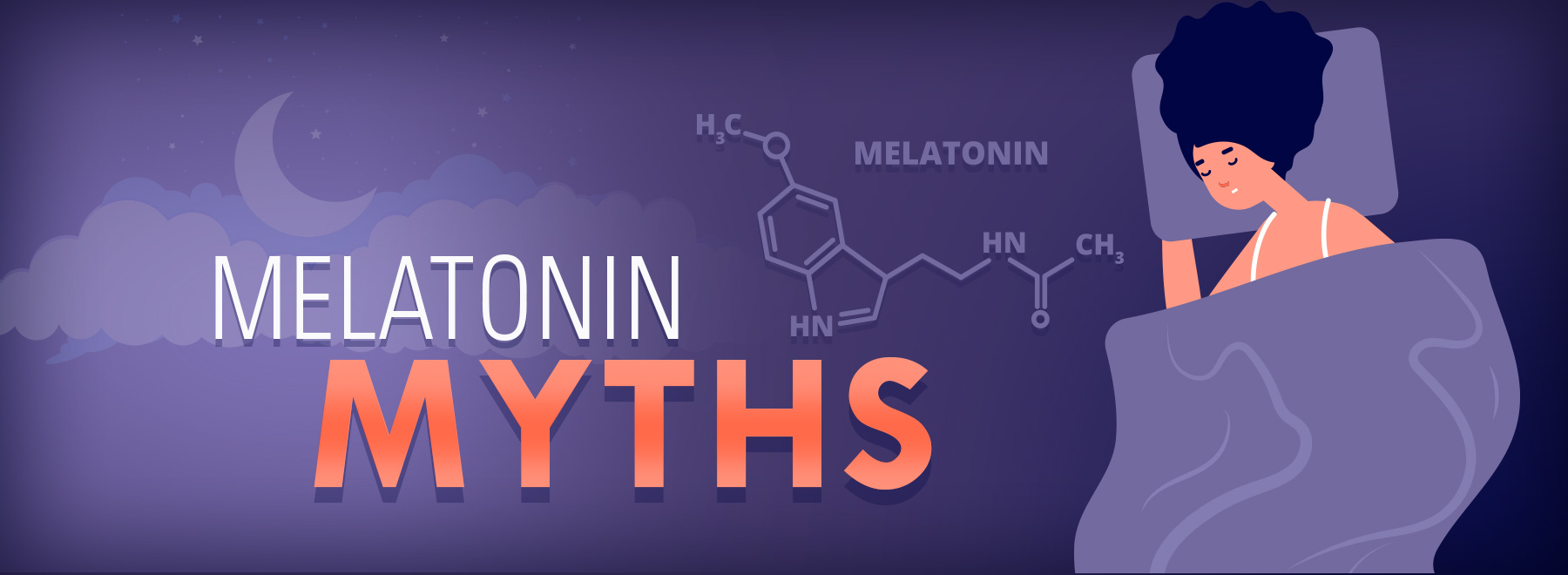It’s often disused, so don’t fall asleep at the switch
Melatonin, which many people depend on to outwit insomnia, comes not only in a bottle, but also in your brain.
And you need to use the latter to make the most of the former.
A hormone, or cell stimulator, that lives in the brain, melatonin is also the name of an over-the-counter supplement often used for sleep disorders. Often, it is used wrong, say experts at the University of Mississippi Medical Center.

“Some people take it a few minutes or a half-hour before bedtime. That’s not really how it works,” said Dr. Saurabh B. Bhardwaj, assistant professor, adult psychiatry, and medical director of the Center for Innovation and Discovery in Addictions, Riverchase -UMMC.
“It’s naturally-produced in the pineal gland of the brain, where a small amount is secreted. It helps regulate your sleep cycle. Exogenous melatonin is a supplement to the natural melatonin and binds to the brain’s melatonin receptors.”
In its naturally-occurring form, it is known as the “hormone of darkness” or “vampire hormone.” It comes out at night.

“As it is secreted at nightfall, it tells the body it’s time to go to sleep,” said Dr. Mohammad Ullah, associate professor, internal medicine, sleep medicine.
“We start feeling sleepy within a few hours. It helps you transition from wakefulness to sleep.”
But the over-the-counter product is not a sleeping pill. It won’t work right away, Bhardwaj said.
“It supplements your normal melatonin, which is a circadian rhythm regulator. It tells you that night-time is coming and it’s time to go to sleep. If you take it in the afternoon, it’s not likely you will fall asleep. The natural melatonin has not built up enough.
“And if you take it right before you go to bed, it won’t do the job that’s expected. It should be taken two or three hours before bed.”
That’s because the sleep cycle is not like a TV set or a garbage disposal.
“It is not a matter of switching it off and on. It is complex,” Bhardwaj said.
When you’re able to fall asleep depends on many things, he said, including your activities during the day, the amount of daylight present, your regular sleep cycle and the build-up of your sleep drive.
“You accumulate the sleep drive as you go about your day,” Bhardwaj said. “It finally reaches the edge where you can’t hold off anymore and you have to fall asleep.”
At least one study showed that people who took melatonin supplements fell asleep seven minutes sooner; they added eight minutes to their overall sleep time, and the overall quality of their sleep improved.
But it doesn’t work for everyone, Ullah said. “In some patients, it has a lot of benefit. But you should consult a doctor or sleep specialist before taking it, because there are many reasons for not being able to fall asleep.
“Melatonin may not help at all. You can have insomnia from sleep apnea. In such a case, if you take melatonin, it won’t be helpful, because you’re not treating the cause.”
Otherwise, Bhardwaj recommends supplementing your natural melatonin with a small dose at first, or about 0.5 milligrams, and increase as needed. Depending on the person, larger doses, such as six to 10 milligrams, may be way too high as a starting dose, he said. And your melatonin receptors get a raw deal.
“You might be down-regulating them: The number in the brain might decrease over time if you flood them with melatonin,” Bhardwaj said.
The supplement isn’t known for having any major side effects, unless you consider vivid and bizarre dreams to be major.
“This can happen, especially at higher doses,” Ullah said, “but it doesn’t happen to everybody.”
But everybody must face uncertainty: The problem with OTC melatonin is that it’s considered a dietary supplement; that means it does not have official approval from the Food and Drug Administration for any indication, including insomnia. So you can’t be sure what’s in that bottle.
“Look for a reputable brand” is Bhardwaj’s suggestion.
Some brands may be better than others, Ullah said. “But you can’t tell from the claims on the label if it will work.”
When it does work, it can be effective for travelers who fear jet lag.
“For jet lag, taking the supplement could help,” Ullah said. “Say you live in California, you’re traveling to New York, and your normal bedtime is 10 p.m. At 10 p.m. in New York, it would be 7 p.m. in your body.
“You can take melatonin early so it starts to increase in your body before your body secreting its own melatonin.”
According to a New York Times article, some online sites, such as Jet Lag Rooster, were created to help you figure out when to take it.
Beyond the jet-lagged, melatonin can also be a friend to workers on the night shift whose bodies fight sleep during daylight hours.
“If you want to fall asleep in the daytime, your body needs to know it’s time to sleep,” Bhardwaj said. “So you can begin taking melatonin in the morning, at the same time every day. You trigger the body into knowing this new time to sleep.”
If melatonin isn’t working, or doesn’t sound right, for you, there are alternatives that work like melatonin, but the cost can be high.
For instance, there are melatonin receptor agonists; agonists are substances that act like other substances.
“They work well, but they are really expensive,” Ullah said, “and need to be prescribed by a doctor. They may not be covered by insurance.”
One such agonist is Ramelteon, which is FDA-approved for the treatment of insomnia. “It’s available in only one, eight-milligram single dose,” Bhardwaj said. “It can have side effects: dizziness, nausea, sleepiness. Make sure you are not taking other medications it reacts with.”
Some people resort to less pricey, non-prescription herbal supplements, including kava, Bhardwaj said. But, like other unregulated substances, you don’t know exactly what you’re getting.
“It’s not really recommended,” Bhardwaj said.
Maybe this is one reason why: Kava has been linked to severe liver injury.
Could you really sleep knowing that?
For more information or to schedule an appointment, please visit:
/Healthcare/Sleep_Medicine/Sleep_Medicine_Home.html
The above article appears in CONSULT, UMMC’s monthly e-newsletter sharing news about cutting-edge clinical and health science education advances and innovative biomedical research at the Medical Center and giving you tips and suggestions on how you and the people you love can live a healthier life. Click here and enter your email address to receive CONSULT free of charge. You may cancel at any time.



